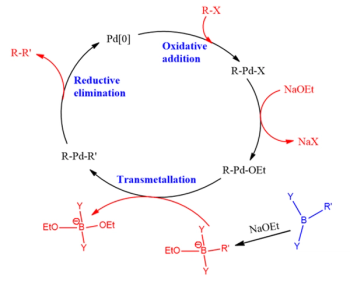
Partnership between Agilent and Delaware State University Promotes Diversity in Science, Technology, Engineering, and Math (STEM) Fields
Agilent Technologies (Santa Clara, California) is launching a partnership with Delaware State University (DSU) (Dover, Delaware), a prominent historically Black university, to increase the share of underrepresented students entering science, technology, engineering, and math (STEM) fields.
Agilent Technologies (Santa Clara, California) is launching a partnership with Delaware State University (DSU) (Dover, Delaware), a prominent historically Black university, to increase the share of underrepresented students entering science, technology, engineering, and math (STEM) fields. This goal is a fundamental mission of the company’s philanthropic work through the Agilent Foundation.
Agilent will donate $1 million along with new laboratory instrumentation to help DSU expand educational opportunities and advance research in applied chemistry, biological sciences, food science, molecular, and cellular neuroscience, and related disciplines. The company’s support will also contribute to building research capacity of a consortium of historically Black colleges and universities (HBCUs) in the mid-Atlantic region, led by Delaware State.
“DSU has a tremendous pool of talented STEM students,” Agilent President and CEO Mike McMullen said in a statement. “This partnership will help us provide direct support to these students and encourage more scholars at HBCUs across the mid-Atlantic to consider opportunities at Agilent and within the broader life sciences sector.”
Agilent’s donation arrives as DSU breaks ground on a new 24,000-square-foot building for its College of Agriculture Science and Technology (CAST), which includes space for new laboratories.
“Many believe that this is a renaissance moment for HBCUs. It’s not,” DSU President Dr. Tony Allen said in a statement, “We’ve been doing the work for 175 years—building the most useful pipeline for African Americans to the American middle class and breaking new ground in every field of human endeavor.” He praised Agilent for understanding the work being done and connecting with DSU’s system, which he said produces 25% of all the Black STEM graduates in the United States.
Agilent’s donation will fully fund 21 graduate and undergraduate students pursuing STEM degrees. The company is also providing analytical laboratory instrumentation, supplies, services, and other infrastructure to equip CAST’s new laboratory space. Additionally, Agilent will provide mentorship opportunities for DSU students with Agilent scientists, engineers, and researchers and will help fund DSU’s summer internship program for STEM students.
Newsletter
Join the global community of analytical scientists who trust LCGC for insights on the latest techniques, trends, and expert solutions in chromatography.




